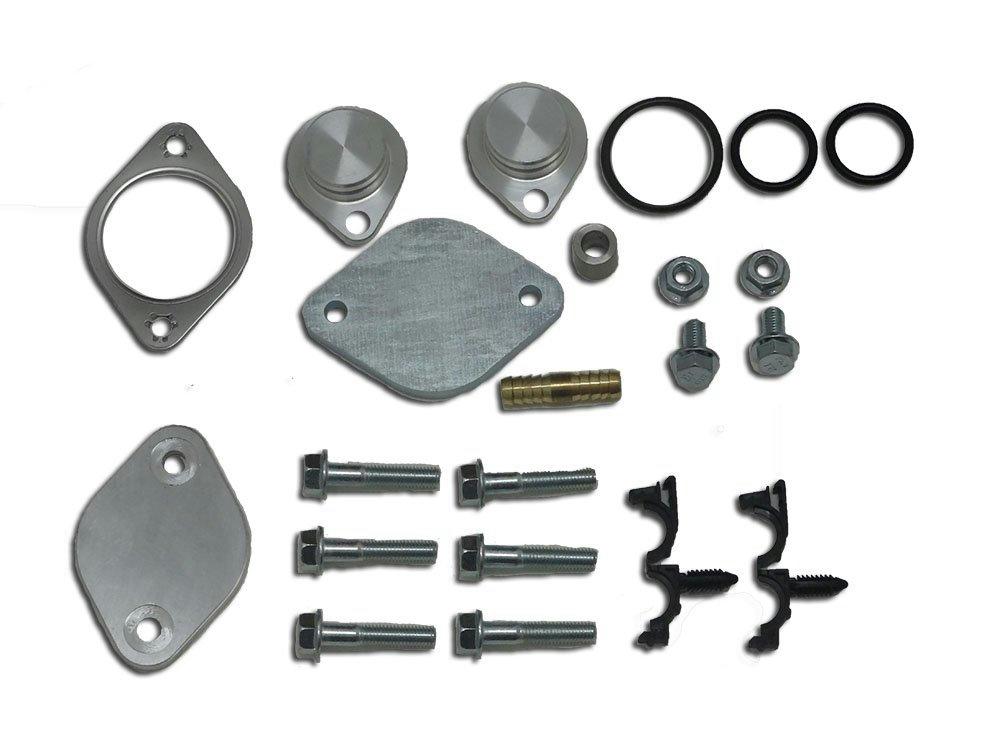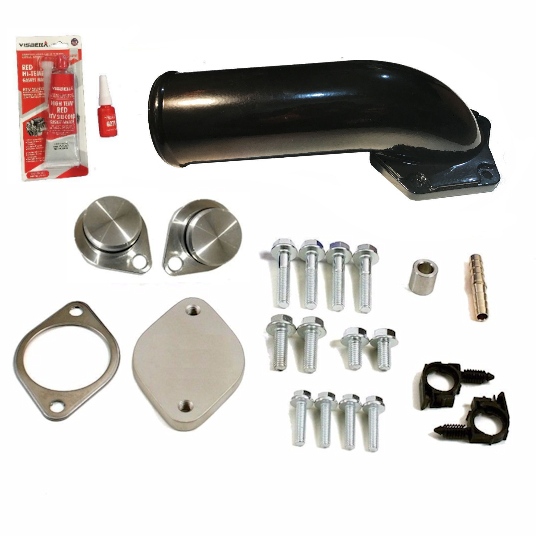What Is EGR Delete?
If you’re new to diesels, you’ve probably heard this term, but don’t know what it means.
EGR stands for Exhaust Gas Recirculation. What the engine manufacturer’s attempted to accomplish here was lowering the NOX emissions (NOX is a generic term for the nitrogen oxides that are most relevant for air pollution, namely nitric oxide and nitrogen dioxide. These gases contribute to the formation of smog and acid rain, as well as tropospheric ozone) being expelled out of the exhaust. The way EGR does this is by allowing exhaust gas (which is lower in oxygen) into the intake of the engine to lower the combustion temperature. This results in a lower NOX emissions.
The downside is that it also results in a clogged up intake system. These spent exhaust gasses are full of soot that would normally exit the exhaust pipe and fall to the ground. This soot is full of carbon (C02), which plants use as food. So while C02 in excess can be a bad thing, a little bit can actually be a good thing. Soot build up in your diesel’s intake system is never a good thing. It will reduce engine power, and causes excessive wear and tear on the engine, due to the higher temperatures that EGR equipped engines run at, compared to diesel engines with no EGR.
EGR has proven to destroy turbos, increase cylinder pressure causing head gasket failures, cause piston failure, as well as other problems.
EGR Delete Benefits:
- Better MPG by eliminating hot exhaust gasses from entering the intake.
- Extends the life of the EGR cooler because there is no more 1200 degree exhaust gasses passing through, which can cause the coolers to crack and fail.
- Removes the risk of premature engine damage from EGR system failure.
What About Deleting Ford’s Diesel Particulate Filter (DPF) (Exhaust Filter):
You can read about that at ‘Ford’s Diesel Particulate Filter (DPF) (Exhaust Filter)‘. You can delete the DPF and leave the EGR, but not the other way around. Some people remove the DPF and not the EGR by simply doing a DPF delete along with a tuner that prevents the engine from going in to the Active Regeneration cycle (Cleaning Exhaust Filter).
Benefits of DPF Removal:
- Drastically slows down the bad oil dilution problem that 6.4s have, which decreases wear and extends engine life.
- Improves exhaust flow, turbo spool rate and lowers your exhaust gas temps, mainly because the restriction is no longer slowing the exhaust gases after the turbo.
- More efficient as far as MPG and HP without the restrictions or regen cycles.
Legal:
Technically these modifications are not road legal if you drive your truck on public highways in the US. That being said, if you race your truck or do not use it on the highway…. it would extend the life of your truck by doing the deletes.
These modifications are solely for closed-course racing and off-road use only, and are not street legal in any state. It is Federal Law. Get busted on a public road with any of thise emissions equipment removed and the owner of the vehicle could face a $2,500 fine — and the Installer who did the work could face a $25,000 fine.
Parts Involved:
The 6.4 EGR delete kits include:
- Coolant Plug O-Rings
- Intake Bolts
- Manifold Bolts
- Exhaust Block Off Plate
- Coolant Block Off Plugs
Note: You will also need a tuner.

Some kits may also include an new intake elbow:

